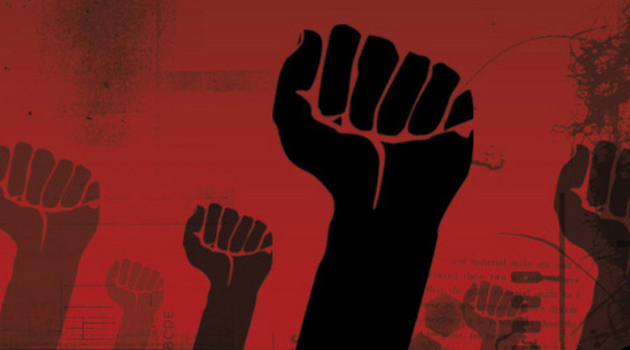In 1989 the Berlin Wall came down, marking the beginning of the end of the Soviet empire. Thanks in no small part to the bravery and patriotism of President Reagan, the world’s largest socialist experiment collapsed in a pile of rubble.
Back then, many people suggested that we had reached the end of ideologies, that free-market capitalism would be triumphant and socialism would be filed away into the more shameful annals of history. Others were more cautious, warning not to dismiss socialism that easily. The lure of free stuff and simple solutions to complex problems could very well one day attract a new generation of followers.
The skeptics turned out to be right. Already 15 years ago, socialism was making a comeback under Venezuelan president Hugo Chavez. Today, the seeds planted by failed presidential candidates Bernie Sanders have grown into credible candidates in elections across America. In Florida, Democrat Andrew Gillum wants to create a “Medicare for all” single-payer health care program, funded by a corporate income tax.
How exactly Gillum thinks a state could have jurisdiction over Medicare, a federal program, remains a mystery. What is not a mystery is the direction that he and other socialists are taking American politics. A single-payer health care system is just one item on a long list of entitlements that socialists push for purely ideological reasons.
There are many points to be made about single-payer per se, but the sprawl of socialist candidates raises the ideological red flags from 30 years ago. A new generation of voters, too young to have seen the atrocities of socialism at work in the Soviet empire, are at risk of being lured by the promises of economic redistribution and the rhetoric of correcting injustices. Therefore, it is important to once again expand the political conversation to include its ideological framework.
It is not difficult to understand how socialism can be construed to be appealing. Arguments about correcting injustices often resonate with people who have a strong pathos for justice and respecting everyone alike. When proponents of “Medicare for all” suggest that it corrects an injustice in access to health care, the issue seems attractive.
Socialists ignore the fact that there are economic differences for a variety of reasons. To them, an economic difference is unjust regardless of its cause. This leads them to drive their quest for justice – however they define it – to a point where they become the totalitarians they claim to be fighting. This is true in America, and it is true worldwide.
South Africa offers a good example of how socialist ambitions can blur the line between correcting true injustice and advancing a collectivist, unjust agenda. The ANC government has recently tried to amend the constitution to allow for the expropriation of some farm land without compensation. Their motives are spelled out in the ANC’s policy platform as:
- Restitution of land that was taken under Apartheid; and
- Redistribution of land for egalitarian purposes.
The first motive is just and moral. Apartheid was a totalitarian form of government that deprived millions of South Africans of basic freedoms. Apartheid, like all totalitarian ideologies, put government above the individual. People who lost property under Apartheid because of their race have the right to restitution, precisely in the same way as people who lost their property under Soviet communism have the right to get it back.
On this issue, the ANC is in the right and would be advancing a libertarian cause by returning wrongfully taken property to those who originally acquired it through gainful, voluntary trade.
The second motive, on the other hand, is in itself a path to new injustices. To take land that was rightfully acquired through voluntary exchange, is to commit an injustice of a similar kind as under communism or Apartheid.
To the socialist, the two motives for land expropriation are the same: they see a difference in the distribution of property and want to eliminate that difference, period. To the libertarian, the two motives are as different as night and day:
- Property that was taken by force under Apartheid must be returned to whom it belonged to originally;
- Property that has been rightfully earned through the free market must remain with its rightful owner.
Ideologically speaking, the call for economic redistribution in America rests on the same confusion of what constitutes an injustice. Access to health care is a case in point. If Jack works hard, saves responsibly and buys a health plan that helps him and his family get the medical care they need, then he has been a responsible citizen who used his individual and economic freedom to benefit himself and his family. If Joe chooses to work less, to not build his finances and to not buy health insurance, his poorer access to health care is the result of his actions.
Practically speaking, the issue of single-payer vs. free-market health care is much more complicated than this. However, its ideological dimension is really not more complicated. To further highlight the point that socialists ignore reasons for economic differences: if Jack somehow stole Joe’s health care, there would have been a case for government to intervene. If, for example, Jack at gunpoint stopped Joe from entering a health clinic, so that he could get there instead, then Jack’s actions would have been unjust and he would deserve to be duly punished.
However, this is not the reason why socialists advocate economic redistribution. They do so entirely because they see economic differences, and by their playbook that is inherently wrong.
To a socialist, the reason why there are economic differences makes no difference; to a libertarian, the reason for the economic differences makes all the difference in the world.

